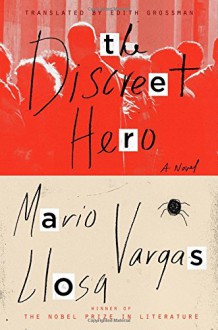
This takes place primarily in the 1980s, in Ireland. On the surface, Lydia, her husband Andrew, and her son Laurence appear to have a perfect life. The whole family lives in Lydia's family home, a beautiful mansion. Lydia is a stay-at-home mom who is devoted (overly so) to her son, and Andrew is a respected judge.
This happy life is a facade. Andrew and Lydia hired Annie, a prostitute, to help them with a problem, and when Annie tried to blackmail Andrew he choked her and Lydia finished her off. Lydia proposed that they bury Annie in their garden, a perfectly safe spot since of course they'd never sell off her family home. Unfortunately, the family also has money problems, brought on by Andrew placing his trust in the wrong accountant. Cracks are beginning to appear in their pretty little life, and those cracks widen when Laurence sees news reports about Annie and begins to suspect that his father had something to do with her disappearance.
I picked up an ARC of this during a recent conference. Although it's been out since 2016, it looks like it was released in hardcover earlier this month.
I read this hoping for an exciting and tense thriller. What I got was sometimes achingly slow pacing, characters I didn't care much about, and boredom. I thought this would be about Lydia and Andrew's increasingly futile efforts to hide their part in Annie's murder. I suppose there was a little bit of that, but the story mostly turned out to be about Lydia and her deeply unhealthy attachment to her son (no incest, but there were a couple moments when I worried that that was where Nugent was going with all of this). Everyone's secrets poisoned everything around them, and the ending was just depressing.
There is no justice and goodness to be found here.
The book alternated between chapters from Lydia, Laurence, and Karen's POVs. Karen was Annie's sister, and probably the most sympathetic of the book's more prominent characters. Although I disliked her actions where Bridget was concerned, I wanted things to work out well for her.
Too bad this wasn't that kind of story.
I felt some sympathy for Laurence, who was clearly being suffocated by his mother, but that sympathy eventually evaporated. He was more like his father than his mother - he actually had a bit of a conscience, but it didn't stop him from doing horrible things and then finding ways to rationalize most of it later. I completely gave up on him when I got to the chapter from his POV about the first time he met Karen. This took place a lot later than the publisher's description led me to believe it would, by the way.
The bulk of the book was pretty boring. Despite the fact that Andrew made several enormous mistakes, he and Lydia didn't have to work nearly as hard to hide their tracks as I'd have expected. As time passed (the story took place over the course of about 6 years, I think), it seemed less and less likely that the mystery of Annie's disappearance would ever be solved. The story finally became more tense and interesting near the end, as everyone's lies started to unravel. Unfortunately, the ending was a disappointment.
I'll end this with a warning for readers for whom weight and weight loss in fiction are an issue. At the start of the book, Laurence is fat and bullied because of his weight. Throughout the rest of the story his weigh yo-yos. The descriptions of his weight loss bothered me - he struggled with a relentless appetite, but that appetite had a tendency to magically disappear after he started dieting, and deciding to diet also magically gave him the energy and ability to exercise.
All of this was actually addressed later on in the story, but it took a while, and until then readers had to put up with the implication that all Laurence needed to do to lose weight was exert a bit of willpower.
There were also lots of mentions of Laurence feeling repulsed by his own weight and of Laurence worrying that the women he was with were repulsed by his weight.
(Original review posted on A Library Girl's Familiar Diversions.)

 Log in with Facebook
Log in with Facebook 









